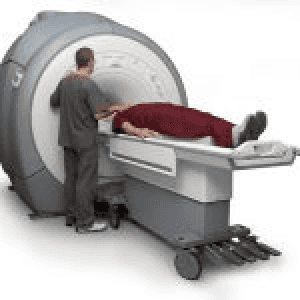
Have you ever had an MRI to diagnose osteoarthritis of the hip or check for cancer or an aneurysm? MRI or magnetic resonance imaging is considered much safer than CT scans that require ionizing radiation. MRIs do not use ionizing radiation. They can be an effective way to detect problems, especially in soft tissue. Doctors may use them to diagnose a stroke or or joint problem. In 2015, experts estimated that 20 million MRIs were conducted in the U.S. each year. Ten years later, that number is up to approximately 40 million.
Gadolinium Contributes to the Hazards of MRIs:
One aspect of these scans is under scrutiny. About one third of MRIs involve injections of a contrast agent to make the resulting image clearer. Some contrast agents contain gadolinium, a rare earth chemical element. For years, scientists have been expressing caution about the safety of gadolinium. This rare earth metal can sometimes linger in the body, and may cause systemic fibrosis, a serious complication. Researchers at the University of New Mexico have found that diet may help contribute to this problem (Magnetic Resonance Imaging, June, 2025). People who have been consuming foods rich in oxalates such as spinach, rhubarb, beets, nuts or chocolate seem to be more likely to form toxic metal nanoparticles.
What About Vitamin C?
The lead investigator also suggests avoiding vitamin C prior to an MRI, because it may increase oxalate levels in the bloodstream. The authors of this research suggest that physicians should use gadolinium only when necessary to minimize serious complications.
Unexpected Hazards of MRIs:
An investigative report from ProPublica revealed a decade ago that some products, Omniscan and Magnevist, were associated with gadolinium residues in brain tissue after imaging (ProPublica, June 11, 2015; Radiology, June 2015).
The first problem noted with gadolinium was kidney toxicity. Nephrogenic systemic fibrosis is as bad as it sounds. In some cases it can be life threatening, and in 2007 the FDA put a black box warning on these contrast agents for patients with kidney impairment.
The fact that traces of gadolinium remained in the brain was news in 2015. Doctors were still uncertain about whether this would have clinical significance. Some patients had reported cognitive impairment following MRI. An editorial in the journal Radiology called for re-evaluation of previous assumptions of safety of the gadolinium compounds in such contrast agents. When radiologists are nervous, it makes us worry too.
The recent study suggests a few approaches to reducing the risk of imaging. If you know about it ahead of time, you could avoid oxalate-rich foods and vitamin C beforehand. Even more important, try to avoid unnecessary images. The next time you need an MRI, ask your doctor if contrast is essential and find out what kind they are using. Perhaps that way you can minimize your exposure to gadolinium and the uncertain hazards of MRIs.
Citations
- Henderson IM et al, "Precipitation of gadolinium from magnetic resonance imaging contrast agents may be the Brass tacks of toxicity." Magnetic Resonance Imaging, June, 2025. DOI: 10.1016/j.mri.2025.110383

